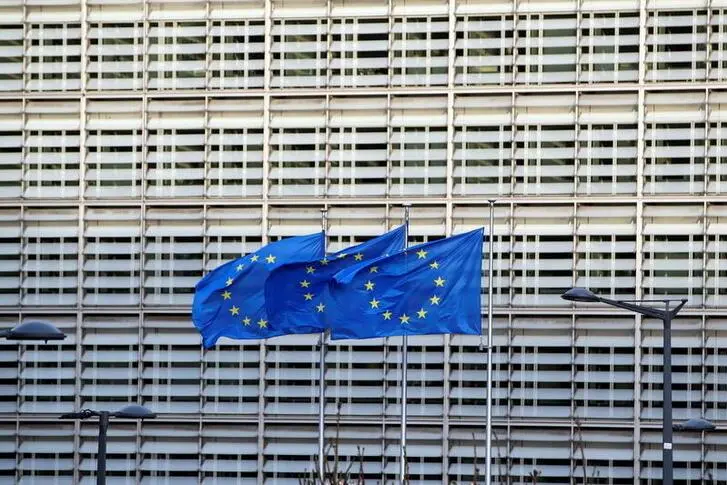PHOTO
EU High Representative for Foreign Affairs Josep Borrell was in Beirut over the weekend. He was carrying a clear and firm message to Lebanon’s corrupt politicians: Form a government and conduct reforms or face the consequences.
The visit was supposed to show the EU’s solidarity with the people of Lebanon. It was also a call to Lebanon’s politicians to take responsibility for the self-inflicted crisis. The EU is ready to help but also ready to take measures if the current leaders don’t conduct the needed reforms. However, it is likely that the EU’s threats will fall on deaf ears. Hence, the bloc should already think of the next steps to follow, which will be quite challenging
The importance of this high-level visit is that it is a sign that Europe will not let Lebanon crash. A crash might lead to another wave of refugees on the EU’s shores, which the old continent cannot afford. On the other hand, Europe will no longer buy the acquiescence of Lebanese politicians and subsidize corruption with European taxpayers’ money. Experience also shows that pushing dictators to relinquish power is a very difficult task. And they are unable to conduct reforms, as they would be self-incriminating. Hence, the EU has a challenging task to induce reforms in Lebanon.
The EU is a friend of Lebanon and friends do give advice. However, in this country that is ruled by a political mafia, the only credible and legitimate interlocutor is the Lebanese army. Borrell met with army commander Joseph Aoun, as the cohesion of the military is the spinal cord that can prevent the country falling apart. The international community has the army as a backup. It can channel aid through the Civil-Military Cooperation Directorate.
Borrell’s meeting with Aoun came after a UN-supported virtual conference in aid of the army was held on Thursday. Several countries pledged to help its handling of the difficult situation it is facing. The Lebanese media described the event as a conference to isolate the corrupt political elite. The army is gaining increasing salience in the international community. French President Emmanuel Macron also received Aoun last month, during the latter’s visit to Paris, which was unusual as the president normally only meets with heads of state, not the commander of a country’s army.
Meanwhile, the Lebanese political class is paying lip service to Borrell and his ilk and banking on the upcoming parliamentary elections. The leaders are betting on the poverty of the people, which means they will be able to buy the votes needed to renew their legitimacy and then address the international community as the “legitimate” representative of the “Lebanese people.”
The “hirak” popular protests have lost their oomph, with people instead busy trying to get their daily necessities. To add to that, the different groups are not organized, unlike the current political elite, and don’t have the electoral machine or the funding to make a breakthrough in the coming elections.
Hence, the EU should put the pressure on to induce change and not rely solely on the will of the Lebanese people to force change in the upcoming elections — provided that they are free and fair, which is not a given in Lebanon. Though supporting the army is a necessary step to delay the collapse of the country, it is not enough. Reforms are needed.
What can the EU push for? The first step is to pressure the Lebanese government to remove subsidies, as the reduced prices are being subsidized by people’s deposits. And the subsidized goods are benefiting the politicians and the Assad regime in Syria, as they are being smuggled outside the country at the expense of the average Lebanese citizen. France has already opened an investigation into central bank chief Riad Salameh and this should be used to prevent him from caving in to the politicians and giving the government loans to finance subsidies.
Next, the EU should open forensic investigations into the different politicians, their acolytes and family members. Therefore, unlike the visit of Borrell, which was aimed at giving firm advice, the next visit should carry bold, direct and personal threats, supported by evidence of the politicians’ misdemeanors. Lebanese politicians have always used refugees to blackmail the EU and extort money. Now it is time for Europe to use a similar tactic with them.
The EU should put pressure on the Lebanese state to go to the International Monetary Fund (IMF). However, the IMF does austerity, not governance. So Brussels should make sure that any aid is coupled with reforms that it supervises and controls. In parallel to its threats, the EU should offer politicians an exit route. Once they are presented with evidence of their embezzlement, the EU should offer them amnesty, provided they leave the scene. Europe should also have an alternative to the elite it is trying to isolate — an elite that has no hope of reforming. The alternative is a transitional government that operates under the supervision of the international community, through which Lebanon can become eligible for aid. This should be a government that can prepare for elections and collaborate with the EU on conducting reforms and restoring stolen funds.
This is clearly a challenging mission for Borrell. However, the EU cannot let things just carry on as they are, as the country will likely roll to a cliff edge, and the fall of Lebanon could be as disastrous for Europe as the Syrian war, which still haunts the EU today.
• Dr. Dania Koleilat Khatib is a specialist in US-Arab relations with a focus on lobbying. She holds a Ph.D. in politics from the University of Exeter and is an affiliated scholar with the Issam Fares Institute for Public Policy and International Affairs at the American University of Beirut.
Copyright: Arab News © 2021 All rights reserved. Provided by SyndiGate Media Inc. (Syndigate.info).





















